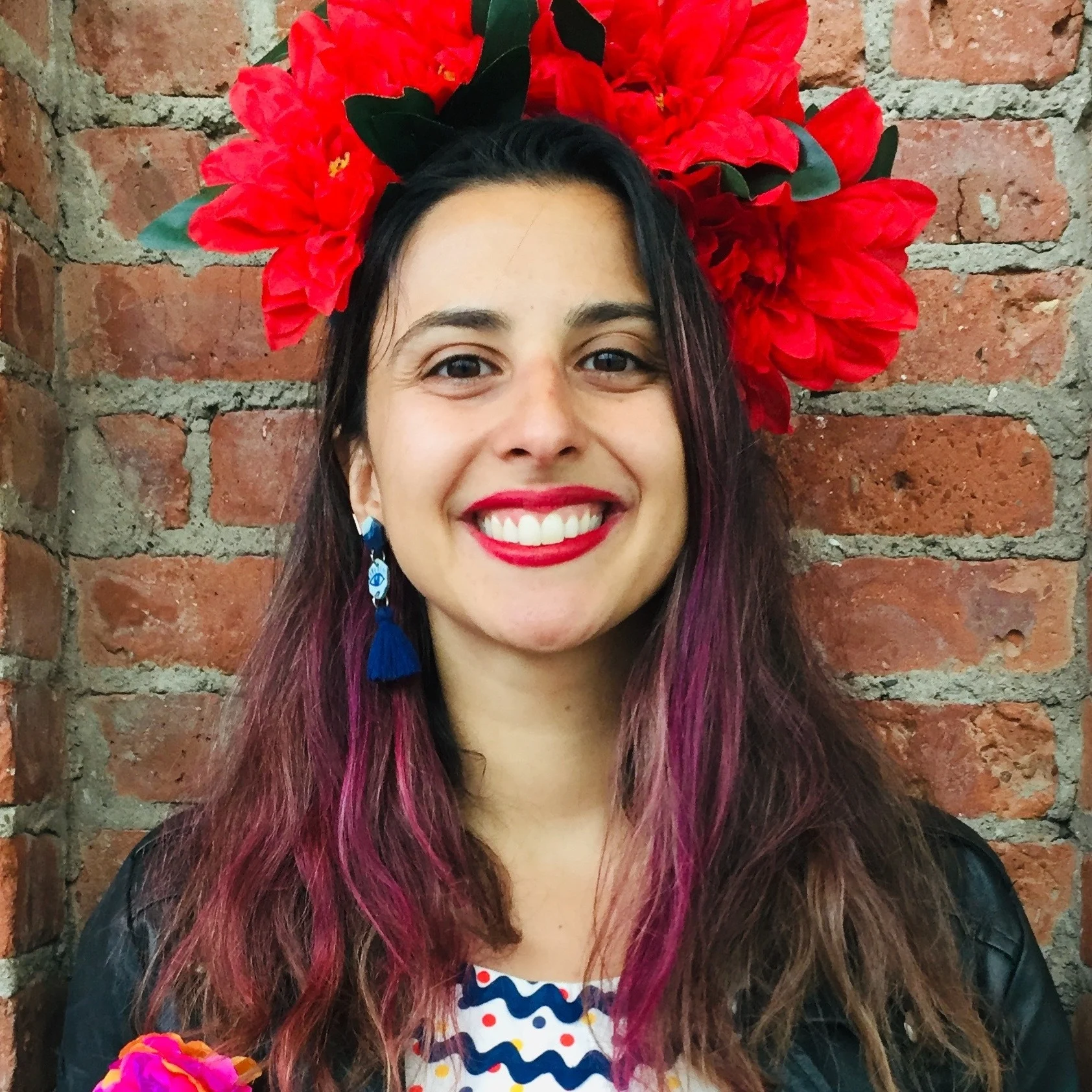Stay in the know
All our latest podcasts delivered right to your inbox.
Robert Carroll, a New York State Assembly member, has dyslexia. He was born and raised in the district he represents, the 44th Assembly District in Brooklyn. Growing up with dyslexia helped make Robert an independent, out-of-the-box thinker. Sometimes it was hard for him to read or think the “right” way, so he learned to see things differently.
After law school, Robert dived into the world of politics, a field that requires a lot of technical reading and writing. But he thrives in the work through a combination of good ideas and delegation. In this week’s episode of How’d You Get THAT Job?!, Robert talks about how he had the privilege of going to schools that helped him work with his dyslexia. Now he advocates for policies that allow all kids to get that same support, even if their families don’t have the resources his family did.
Related resources
Episode transcript
Robert: That, for better or for worse, is something that I think, you know, dyslexic children learn very, very quickly is to how to solve problems for themselves. And I think it's our job as adults to try to, you know, accentuate the positive and limit the negative and to make sure that, you know, those kids have, you know, the supports they need and the education they need so that they can really thrive and be unbelievably successful in whatever they choose to do.
Eleni: From the Understood Podcast Network, this is "How'd You Get THAT Job?!," a podcast that explores the unique and often unexpected career paths of people with learning and thinking differences. My name is Eleni Matheou and I'm a user researcher here at Understood. That means I spend a lot of time thinking about how we find jobs we love that reflect how we learn and who we are. I'll be your host.
We hear a lot about national politics, but we often don't acknowledge the impact that state and local laws have on our daily lives. My next guest is New York Assembly Member Robert Carroll. He represents the 44th District in Brooklyn at the state house in Albany, and he's co-sponsored and written several bills related to education, literacy, and dyslexia. For Assembly Member Carroll, it's personal. He was diagnosed with dyslexia at a young age. Now, he's taking his own experience to help students with dyslexia across New York State. We talk to him from his bustling office in Brooklyn in the middle of a thunderstorm, so you might hear some rain during this one.
Hi, Robert. Thank you so much for talking to me today.
Robert: It's great to be here. Thank you for having me.
Eleni: Yeah. So, I thought a good place to start is, you know, just naming the fact that I did not grow up in the States. So, I don't really know that much about local politics, and I'm sure that people that did grow up here might even have the same issues. So, could you just tell me a little bit about what your position is in government, what your district looks like, and, you know, what a typical day might look like for you?
Robert: I'm a New York State Assembly member. I represent the 44th Assembly District in the New York State Legislature, of which there are 150 members of the New York State Legislature, each coming from a different district from around the state. The districts are approximately 140,000 people. As I think people are seeing in America, more and more, so much of the important work and so many of the rights that so many hold dear in our country really are done at the state level in so many ways. And so, it's great to be able to represent a part of Brooklyn that I grew up in and that lots of my family members still live in and good friends. And so, I've been doing this for almost six years now.
Eleni: What led to you becoming an assembly member? How did you kind of get here?
Robert: My family was always very civically engaged. From a young age, I was very much attuned with what was going on right here in Brooklyn, as well as just kind of politically generally. And so, you know, after I graduated law school, I was very active in Brooklyn politics and civic life here in Brooklyn. And the then assembly member had decided to retire. And so, I ran against two other people in the Democratic primary and won that. And then I won the general election as well. But it's a very, very democratic area. So, it was really the Democratic primary was the main event, so to speak.
Eleni: You know, in a previous conversation, we heard from you that, you know, you have dyslexia, and you also really like to talk. Do you want to talk a little bit about how that might have influenced your career exploration at all, or even your interests or hobbies?
Robert: Struggling with dyslexia as a child let me know full well that not only are there many ways to skin a cat, but that those who say they know best, those who say that they are experts, are oftentimes wrong, and oftentimes, you know, don't see the full picture and that things can be deceiving. And so, it made me a little contrarian. It made me a little bit of somebody who every once in a while doubted things. And I, you know, it definitely gave me kind of a perspective on the world from a very, very young age.
Eleni: How do you think that influenced, like your values and your politics and like the work that you do now and the things that you advocate for?
Robert: You know, what I realized as a child was "Just because you learn differently or think differently doesn't mean that therefore you are in some way less than someone else." And so, you know, what I would say is that it made me very much a free and independent thinker, but a thinker that also is rooted deeply in facts. You know, one of the things that I think lots of young people struggle with, lots of families I see struggle with is, you know, reading and writing or these kind of initial indicators so often of a child's academic achievement and intelligence. And, you know, there's lots of folks to this day, you know, who roll their eye at dyslexia. They roll their eyes and say that, you know, they don't believe in it. They think that it's mumbo jumbo. They think that it's false and that, and of course, you know, at first blush, you might say, "Well, just a second."
Of course, the most gifted children — to use a phrase that they might use — well, of course, they're going to be the kids who are the earliest readers when if you scratch a little bit deeper, if you actually look a little bit more critically, of course, life doesn't pass that out, right? Yeah. There are some people who are phenomenally, learned, read very early on and the such and are phenomenally gifted and talented people and have done amazing things for our society. But of course, just the reverse is true as well as we've had phenomenally gifted people in every walk of life who have not.
Just because a young person is struggling to learn how to read when they're six or seven, doesn't mean that they don't have unbelievable amounts of talents and gifts, you know, academically and otherwise, that we should not be trying to foster and that we need to get them the education that they deserve. And stealing somebody's agency, because you don't give them that proper education, is a real crime to that person and has damaged so many people. And I was lucky not to have that happen to me. I was lucky that my parents had the resources and the means to get me an education. And so, I've dedicated a large part of my adult life to making sure that you don't have to be lucky or wealthy or privileged to get a proper education.
Eleni: Yeah, 100%. And I think that's so important to think about, like, you know, like the effects of standardizing what intelligence looks like because it really does look different for every person. You've touched on a little bit about like, you know, your experience of school. Could you talk a little bit more about your experience? Like as a person with dyslexia, you know, what helped you through and how that's kind of contributed to the things that you're working towards now?
Robert: Well, I mean, I think one of the big things, I think perseverance, right? And I think understanding that, you know, we're all going to face adversity and challenges. You know, dyslexic children, unfortunately, see that adversity very early on. It's not the hardest adversity anybody has ever faced, but it definitely presents itself very early on in a school setting. And I think that that can be unbelievably frustrating, but also allows for, you know, individuals to have a real grit and to become independent critical thinkers very early on.
Because, of course, you know, all of us are just trying to survive. A young person, when they're faced with an obstacle and they need to figure out a way around it, well, if the more traditional way is not going to work for them, they're going to have to come up with unique ways to solve that problem. And I think one of the, you know, I'm reticent to generalize about dyslexia or neurodiversity. I think people are all very different, and my story is not the same as anybody else's story and vice versa.
But I do think that, you know, when people like to talk about dyslexia being a gift, I think one of the places where you could really make that assertion is the fact that if you give a child, a young person, the proper support so that they can become a fluent and fluid reader and they don't have the kind of stigma or self-esteem issues that can then sometimes come with that if they've continually failed. They also have had to constantly approach problems in novel ways. And I think like in most things in life, I don't care what you're doing. I don't care if you're, you know, in government, in business and the arts and media, in the sciences, people are paying you or hiring you or electing you to solve novel problems, not to recite previous successes.
And I do think that, you know, that for better or for worse is something that I think, you know, dyslexic children learn very, very quickly as to how to solve problems for themselves. And, you know, I think it's our job as adults to try to, you know, accentuate the positive and limit the negative and to make sure that, you know, those kids have, you know, the supports they need and the education they need so that they can really thrive and be unbelievably successful in whatever they choose to do.
Eleni: Yeah. Thank you for going into all of that. I think it's, yeah, really interesting to think about, you know, how adversity impacts the way that you approach other aspects of life. And, you know, perseverance is a skill, not necessarily an innate thing. It's definitely like learned and can be taught and comes from experience. So, I totally understand where you're coming from there. For you personally, were there any particular interventions that made a big difference that helped you through that you kind of wish for other kids, like in a similar circumstance now?
Robert: Oh, I mean, 100%. I mean, so, you know, I went to my local public school, P.S. 230, and I was a very chatty kid. And at the end of first grade, though, I couldn't spell my name or say the ABCs. And I was lucky enough to have a teacher who went to my parents and said, "Look, I, you know, I bet, you know, I bet my salary that he's dyslexic or he has dyslexia." And my parents had the means to go get me a neuro psych at Columbia University Medical School. And then I went to the Gateway School midway through the second grade, and I then went to the Windward School for middle school, and they saved my life. I would have never gone to law school. I would have never been able to do those things if I wasn't given those foundational skills by the time I was starting when I was seven years old.
And so, you know, a lot of the work we do in the legislature is about how do we do early screening and identification of dyslexia, how do we bring in evidence-based supports, how do we start treating children as individuals? You know, so there's a lot of nonsense. You know, I lied, cheated, stole to get out of foreign language requirements, you know, I had to constantly advocate for things like, you know, extended time for, you know, the SAT or the bar exam and, you know, a bunch of the things that, you know, I think I want a school system that realizes that, "Look, there's lots of strengths and weaknesses out there." Some are much more easily identified, and some have very specific signs and symptoms and need specific remedies like dyslexia, and others are more amorphous.
But what we need to do is we need to treat children like individuals. And we need to realize that, you know, it's a big, diverse world out there and we want them to interact with that big, diverse world. You know, it's an absurd thing to say, "Look, let me have a speed-reading contest with you." I do like to read. I read quite often. But yeah, if I took the bar exam and I didn't get time and a half, I don't know if I would have passed it on the first time. And look, you know, you want to take it without any time? I'm fine with that because I know the studies show that folks who are, you know, don't have dyslexia, who get extended time, their scores don't change. And folks who do have dyslexia, their scores change dramatically. And so, I definitely, I am dogmatic when it comes to that about identification and making sure that we're providing, you know, evidence-based curriculum in our schools.
Eleni: Yeah, that's great. I know you just mentioned like a couple of things that could still come up for you, like, you know, reading speed and learning the language. Is there anything that you would like to share about the ways dyslexia kind of, you know, impacts your day-to-day and maybe what you do when challenges come up and how you advocate for yourself, and you share those things with like the people you work with?
Robert: Look, I don't know, Spanish or Russian or Chinese or French. And I don't try to pretend that I do. I have a great team around me. I think we do things collaboratively a lot, and I think that that's really an important skill. There's not anything that I go, "Well, I don't do that." We write lots of newsletters and op-eds and bills here. I draft some of it, other people draft some of it, other people do this or that. I'm a much better persuasive writer than technical writer. You know, I would say that I probably write 80 or 90% of the op-eds that come out of our office that we publish. Some of the more technical writing, I would say, you know, gets done by staff. But, you know, all of it is very collaborative.
You know, there are people in our lives who are overwhelmed by detail and are pedantic, and don't know how to get to the point. And some people would say that, you know, this is the secret strength of people who are successful dyslexics is kind of getting to the point and what are the things that matter? And, you know, I would definitely say that's something that speaks to me.
Eleni: I think it's interesting to think about, you know, you mentioned, you know, one of your strengths might be like pulling out key points or like, you know, focusing in on like certain details. And I think what I love about this podcast is like everyone can kind of share where they are in personal experiences of dyslexia and other like thinking and learning differences, you know, where it does kind of like look and sound and kind of manifest differently for everyone.
So, I think that's really cool that that's how it kind of shows up for you and, you know, like this idea of having a team of collaborators where everyone is able to bring to the table whatever their unique strength is. I think that is so important because, you know, we're not all geared to be good at all the same things. And that's a great way to kind of lean into what your strengths are by relying on other people to also lean into theirs. So that's a really great point.
Robert: I think it does. It takes kind of all types, and I think it's surrounding yourself in environments where, you know, I also find like people do things that they're good at and that they like doing. And so like, look, I can, you know, I can talk and give interviews till I'm blue in the face, right? I'm not I'm not worried. I will get on the phone with a reporter or somebody else like, these are things that I don't find difficult or hard at all and thus am happy to do them all the time. And so, I think when people have strengths and weaknesses, it's also it's like, "OK, what's going to make your day a day that is more enjoyable or workflow that's more enjoyable?"
Obviously, we all have to do things sometimes that aren't completely, you know, that we like to do or are always great at. But I think finding roles that you go and say, "I know I can hit the ball here. I know this is the kind of role player I can be." You know, will just set you up for a lot more success and then will also make it so that you're less likely to be put in a position where you feel like, "Look, those aren't my strengths."
Eleni: Yeah, everyone's experience is unique. And also, the world is a more interesting place for the fact that people learn and think differently. Progress wouldn’t happen if we didn’t have some people that like, thought out of the box. And then also we need people that are really good executors and able to get things done.
Robert: Totally.
Eleni: Thank you so much for talking to me and for sharing your story and for all the work that you're doing in this space in terms of, you know, initiatives and, you know, state bills that help kids with dyslexia.
Robert: Well, thank you so much for having me on, and thank you for this series.
Eleni: You've been listening to "How'd You Get THAT Job?!" from the Understood Podcast Network. This show is for you, so we want to make sure you're getting what you need. Email us at thatjob@understood.org with your thoughts about the show or maybe you'd like to tell us how you got that job. I'd love to hear from you. If you want to learn more about the topics we covered today, check out the show notes for this episode. We include more resources as well as links to anything we mentioned in the episode. Understood is a nonprofit organization dedicated to helping people who learn and think differently discover their potential and thrive. Learn more at Understood.org/mission.
"How'd You Get THAT Job?!" is produced by Grace Tatter. Brianna Berry is our production director. Our theme music was written by Justin D. Wright, who also mixes the show. For the Understood Podcast Network, Laura Key is our editorial director, Scott Cocchiere is our creative director and Seth Melnick is our executive producer. And I'm your host, Eleni Matheou. Thanks again for listening.
Host
Eleni Matheou
leads user research for Understood. She helps Understood to center its work on the lived experiences and voices of people who learn and think differently.
Latest episodes
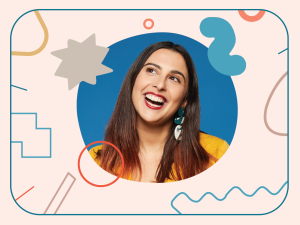
June 28, 2023
In the series finale of How’d You Get THAT Job?!, host Eleni Matheou unpacks what we’ve learned about how people thrive at work.

June 14, 2023
Nathan Friedman is the co-president and chief marketing officer of Understood.org. And he has dyslexia and ADHD. Learn how he got into the C-suite.
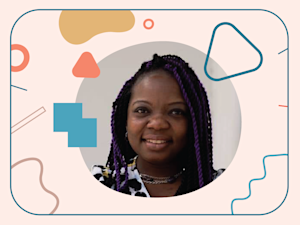
May 31, 2023
Dr. Loucresie Rupert is a child, adolescent, and adult psychiatrist with ADHD. She didn’t have an easy time getting her diagnosis as a Black woman.
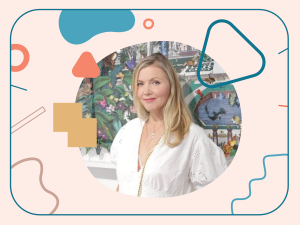
May 17, 2023
Kristjana Williams is a London-based Icelandic artist with dyslexia. She wasn’t diagnosed until she was 25, and now she has her own studio.

May 3, 2023
Aideé Chávez Frescas has ADHD, and is a senior social media manager at Understood. Her posts help end stigma and show others they’re not alone.
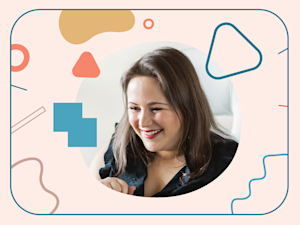
April 19, 2023
Alex Gilbert is a career coach with ADHD and dyslexia. After working in leadership development for years, she started her own coaching business.
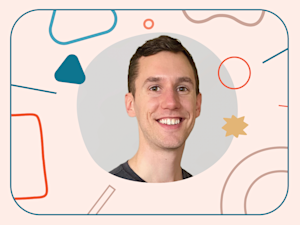
April 5, 2023
Dan Reis was diagnosed with ADHD during the pandemic. Now, he’s made it his mission to explore coping strategies to help him get his work done.
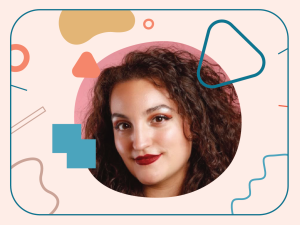
March 22, 2023
Rachel Basoco’s two jobs keep things interesting for her ADHD. She works full time at Fidelity, and part time at 11:11 Media, Paris Hilton’s company.
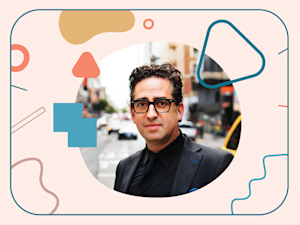
March 8, 2023
Gil Gershoni says that everything he does is dyslexic. He founded the branding firm Gershoni Creative and hosts the Dyslexic Design Thinking podcast.
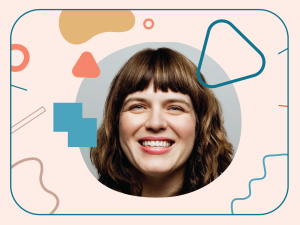
February 22, 2023
Claire Odom is a psychotherapist with ADHD. She’s also a disability inclusion consultant who has advice on navigating the workplace.

